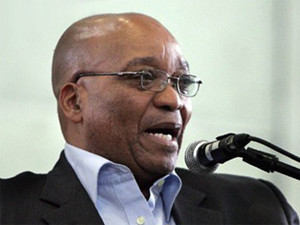
President Jacob Zuma's announcement of his new Cabinet earlier this evening could mean a major shake-up for the ICT industry, with the formation of the new Department of Telecommunications and Postal Services and a "reconfigured" Department of Communications.
The new ministry, said Zuma, will serve to derive more value from the country's telecoms sector, which he described as "fast-growing" and estimated to have been worth R180 billion in 2012.
Zuma named controversial former state security minister Siyabonga Cwele as the new telecommunications minister, whose tenure at the state security ministry was marred by several contentious missteps. In 2011, Cwele's wife, Cheryl, was convicted of operating an international drug syndicate - an activity that Cwele claimed to have had no knowledge of.
Hlengiwe Mkhize was appointed as Cwele's deputy at the new ministry.
The Department of Communications (DOC) has also been reconfigured to include additional functions, said Zuma.
"We have established a new communications ministry, which will be responsible for overarching communication policy and strategy, information dissemination and publicity, as well as the branding of the country abroad," he stated.
The new communications minister is ANC MP and former Makhado municipal manager Faith Muthambi. This announcement scuppered industry's hope that well-liked former communications minister Yunus Carrim would continue in the portfolio.
Carrim was appointed by Zuma less than a year ago to replace the disgraced Dina Pule. During his short stint at the DOC, Carrim earned the respect of telecoms players and industry pundits, with a level-headed and organised approach to tackling the key issues that have long plagued the department. Stella Ndabeni-Abrahams remains as deputy communications minister.
Zuma announced that the new communications ministry would be made up of the Independent Communications Authority of SA, the SABC, Government Communication and Information Systems, Brand SA and the Media Development and Diversity Agency.
Musical chairs
The Cabinet shake-up also spells the end of the line for the highly-regarded Derek Hanekom as head of the Department of Science and Technology (DST). Hanekom, whose steady and scandal-free leadership of the DST earned him wide praise from industry and political commentators, now becomes minister of tourism.
Zuma named Naledi Pandor as Hanekom's replacement, who returns to the DST after a stint as minister of the Department of Home Affairs (DHA). She previously served as science and technology minister from 2009 to October 2012.
Erstwhile public enterprises minister Malusi Gigaba takes over the home affairs portfolio from Pandor, with new deputy minister Fatima Chohan replacing Buleleni Magwanishe.
Zuma's new Cabinet also sees Lindiwe Sisulu being replaced as minister of public service and administration by former minister in the presidency Collins Chabane, while Ayanda Dlodlo stays on as deputy minister.
Minister of trade and industry Rob Davies was retained by Zuma, while deputy minister Elizabeth Thabethe has been replaced by ANC Youth League national convenor Mzwandile Masina.
Similarly, transport minister Dipuo Peters and deputy minister Sindi Chikunga keep their respective posts. The Department of Transport has been in the spotlight in recent months over the much-maligned Gauteng e-tolling system.
Controversial move
In announcing the new Cabinet, Zuma's most controversial move has arguably been the removal of finance minister Pravin Gordhan, who has been replaced by Nhlanhla Nene - deputy finance minister since 2008.
Gordhan takes over as minister of cooperative governance and traditional affairs.
In reaction to the new Cabinet appointments, the Democratic Alliance (DA) last night issued a statement criticising Gordhan's redeployment.
"Government will almost certainly have negative consequences for international investor sentiment towards South Africa," DA leader Helen Zille noted.
Share